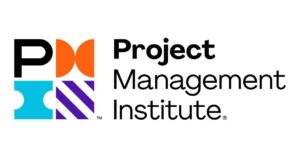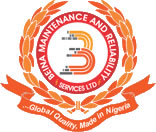ASQ – CERTIFIED QUALITY ENGINEER (CQE)
CERTIFIED QUALITY ENGINEER
The Certified Quality Engineer is a professional who understands the principles of product and service quality evaluation and control.
This body of knowledge and applied technologies include, but are not limited to, development and operation of quality control systems, application and analysis of testing and inspection procedures, the ability to use metrology and statistical methods to diagnose and correct improper quality control practices, an understanding of human factors and motivation, familiarity with quality cost concepts and techniques, and the knowledge and ability to develop and administer management information systems and to audit quality systems for deficiency identification and correction.
REQUIREMENTS
These are the requirements, experience and exam specifics for a Certified Quality Engineer.
Work Experience
Candidates must have eight years of on-the-job experience in one or more of the areas of the Certified Quality Engineer Body of Knowledge.
A minimum of three years of this experience must be in a decision-making position. “Decision-making” is defined as the authority to define, execute, or control projects/processes and to be responsible for the outcome. This may or may not include management or supervisory positions.
Candidates must have worked in a full-time, paid role. Paid intern, co-op or any other course work cannot be applied toward the work experience requirement.
For candidates who were certified by ASQ as a quality auditor, reliability engineer, supplier quality professional, software quality engineer or quality manager, the experience used to qualify for certification in these fields applies to certification as a quality engineer.
Education
Candidates who have completed a degree from a college, university or technical school with accreditation accepted by ASQ, part of the eight-year experience requirement will be waived, as follows (only one of these waivers may be claimed):
- Diploma from a technical or trade school — one year will be waived
- Associate degree — two years waived
- Bachelor’s degree — four years waived
- Master’s or doctorate — five years waived
Degrees/diplomas from educational institutions outside the United States must be equivalent to degrees from U.S. educational institutions.
Expectations
These are the minimum expectations of a Certified Quality Engineer.
- Will have a fundamental understanding of quality philosophies, principles, systems, methods, tools, standards, organizational and team dynamics, customer expectations and satisfaction, supplier relations and performance, leadership, training, interpersonal relationships, improvement systems and professional ethics.
- Will have a fundamental understanding of a quality system and its development, documentation and implementation to domestic and international standards or requirements.
- Will have a basic understanding of the audit process including types of audits, planning, preparation, execution, reporting results and follow-up.
- Will be able to develop and implement quality programs, including tracking, analyzing, reporting and problem solving.
- Will be able to plan, control and assure product and process quality in accordance with quality principles, which include planning processes, material control, acceptance sampling and measurement systems.
- Will have basic knowledge of reliability, maintainability, and risk management, including key terms and definitions, modeling, systems design, assessment tools and reporting.
- Will have a thorough understanding of problem-solving and quality improvement tools and techniques. This includes knowledge of management and planning tools, quality tools, preventive and corrective actions, and how to overcome barriers to quality improvements.
- Will be able to acquire and analyze data using appropriate standard quantitative methods across a spectrum of business environments to facilitate process analysis and improvements.

Email Addresses
info@beinareliability.com,
training@beinareliability.com,
certifications@beinareliability.com,
procurements@beinareliability.com,
services@beinareliability.com
Phone Numbers
+234(0)8035470560
+234(0)9045559549
+234(0)9099636439,
+234(0)9061984306,
+234(0)8029184653,
Subscribe For Updates
Copyright © 2025 Beina Maintenance & Reliability Services LLC™. Website by Exploits Mediatech


